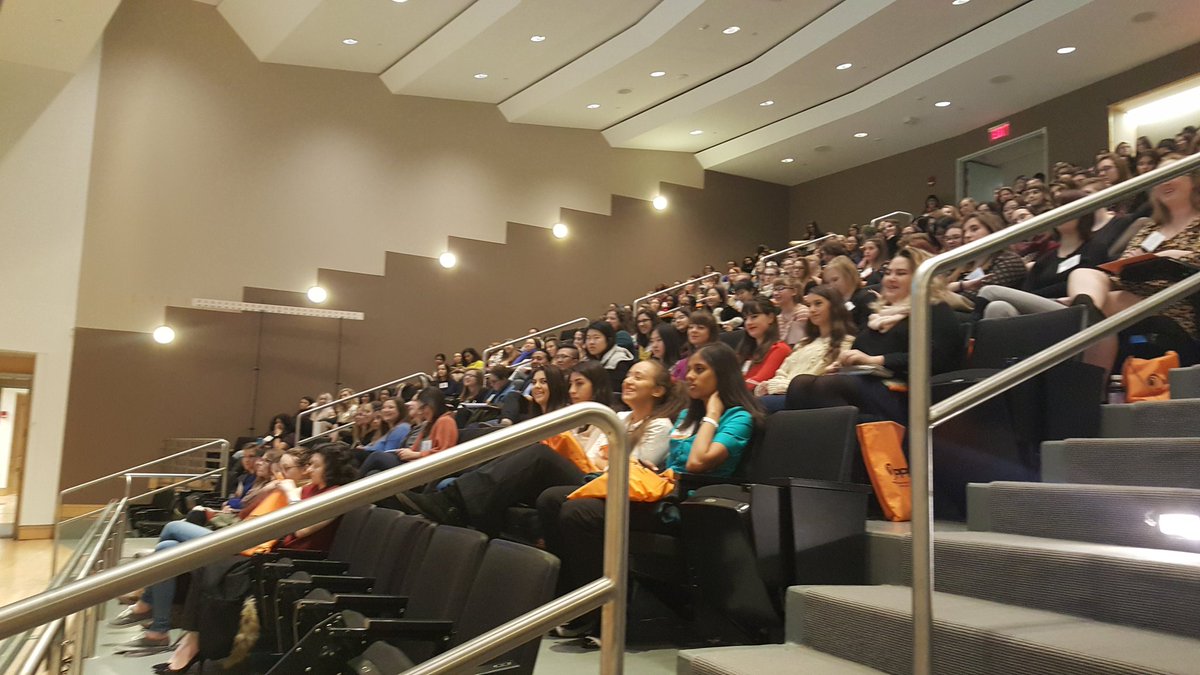
Rocket scientists calculate the ‘go point’ at Princeton’s Undergraduate Women in Physics Conference
Their target: imposter syndrome
Being a woman in science isn’t easy. In most situations, you have to deal with everything that comes with being the only woman in the room. In Hidden Figures, a new film based on the true story of NASA’s female “computers”, Taraji P. Henson depicts this perfectly as legendary mathematician Katherine G. Johnson, who was awarded the Medal of Freedom in 2016 for her contributions to the space program.
Katherine G. Johnson’s calculations got us to the moon — but for many women studying and working in STEM (Science, Technology, Engineering, and Mathematics), race and gender can be a strong tether. Everyone brings their own assumptions to work. What’s difficult on the daily can be a range of unequal treatment, access, and bias, from micro-aggressions to sexual harassment.
This week, on February 11, the UN Headquarters in NYC hosted the International Day of Women and Girls in Science, with actions to reduce gender bias and increase opportunities, funding, and social support for women who study, research, and work in STEM. As of press time, a search on the White House’s website shows no results on the topic, though the Obama administration’s archives tell a different story.
Women in Science Day is organized by the UN and UNESCO, in conjunction with other events — including exhibitions, workshops, and conferences. The online Women and Girls in Science manifesto has already gained over 91,ooo signatures.
In January, Shannon Swilley Greco, a science education program leader at the Princeton Plasma Physics Laboratory, organized a Princeton chapter of the national Undergraduate Women in Physics conference. The chair of the Princeton University’s Physics department, Lyman Page, assisted in organizing the conference with graduate student Laura Chang. It was held with nine simultaneous conferences nationwide (and one in Canada), and supported by the Department of Energy and the National Science Foundation.

Students attended a variety of workshops and sessions at the conference | Courtesy Elle Starkman/PPPL Office of Communications
Over 200 college students hailing from the Mid-Atlantic region — and Puerto Rico — showed up on campus for workshops, networking, and support, including resources for LGBTQ scientists and physicists of color.

Organizer Shannon Swilley Greco, a Science Education program leader at PPPL, spoke at the conference | Courtesy Elle Starkman/PPPL Office of Communications
From the podium in McDonnell Hall, Greco, who joked she was “very pregnant”, addressed a sea of students in various states of business casual. She said she believes something else is holding many young women back: a gnawing, anxious lack of self confidence.
“You belong. You’re here, and you belong here. Just look all around you! These people feel the same way you do. And there are so many of them!” Greco said from the podium. Row after row of girls nodded in the audience, tweeting and posting with #apscuwip.

Over 200 undergraduates packed into McDonnell Hall for the weekend conference | Courtesy Shannon Greco and Elle Starkman/PPPL Office of Communications
That feeling of being a fraud — and deep-seated dread that you’ll be “found out” for who you really are — is a particularly important problem for girls and women in STEM, says Greco. She calls it “imposter syndrome.” It’s a tricky issue, and an emotional one too, says Greco.

Young women presented their research at a poster session at Frick Chemistry Laboratory | Courtesy Elle Starkman/PPPL Office of Communications
It’s the fear of not being good enough to do what you’ve been hired to do. It’s believing you got lucky somehow, and that’s why you seem successful. It’s downplaying your accomplishments, saying it was a “team effort” (when it was just you). It’s just plain not recognizing yourself as others see you — and knowing how good you really are.
A career in science demands a seemingly limitless fuel: confidence, and the conviction that your research is important. Committing to months of late nights in the lab is tough enough. It’s even more difficult when you question whether you deserve to be there.
“I don’t ever want it to be lack of preparation, or someone making them feel uncomfortable or unwelcome, or crippling self-doubt,” Greco said at the conference. “Or that they feel ill-equipped to handle the pressures of a research career.”
Greco said young women in science are craving more dialogue and real talk. It’s just about embracing awkward, difficult moments of doubt. Even the smartest, bravest women feel it, she said. And some women end up leaving STEM all together.

Shannon Swilley Greco introduced a career panel. Left to right: Tabbetha Dobbins, Rowan University Department of Physics and Astronomy; Joan Smith, Google; Jamie Hutchinson, Solvay; and Katerina Visnjic, Princeton University Physics Department | Courtesy Elle Starkman/PPPL Office of Communications
“Find good mentors,” she said. “Know that it doesn’t always work. And if it doesn’t, try something else. Fail. Go ahead. Failing often is not failing. It’s persistence.”
